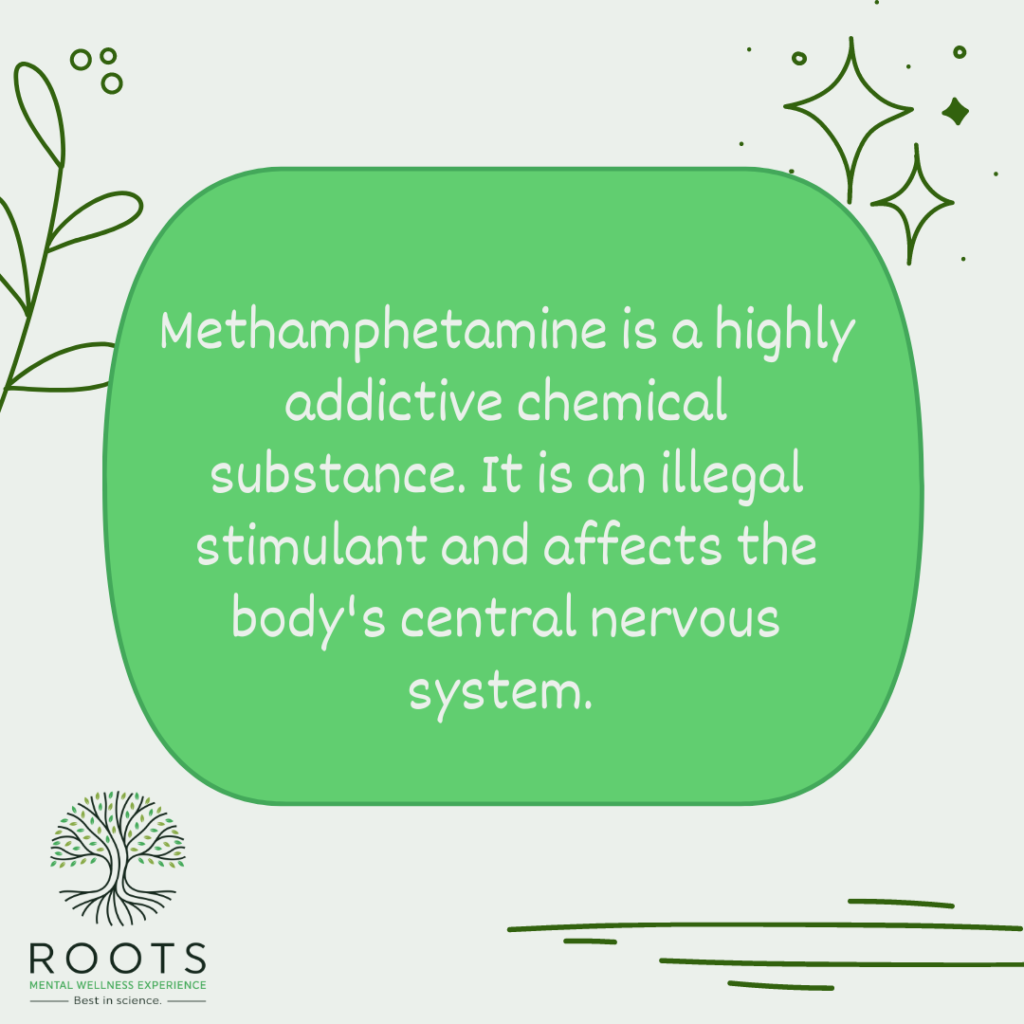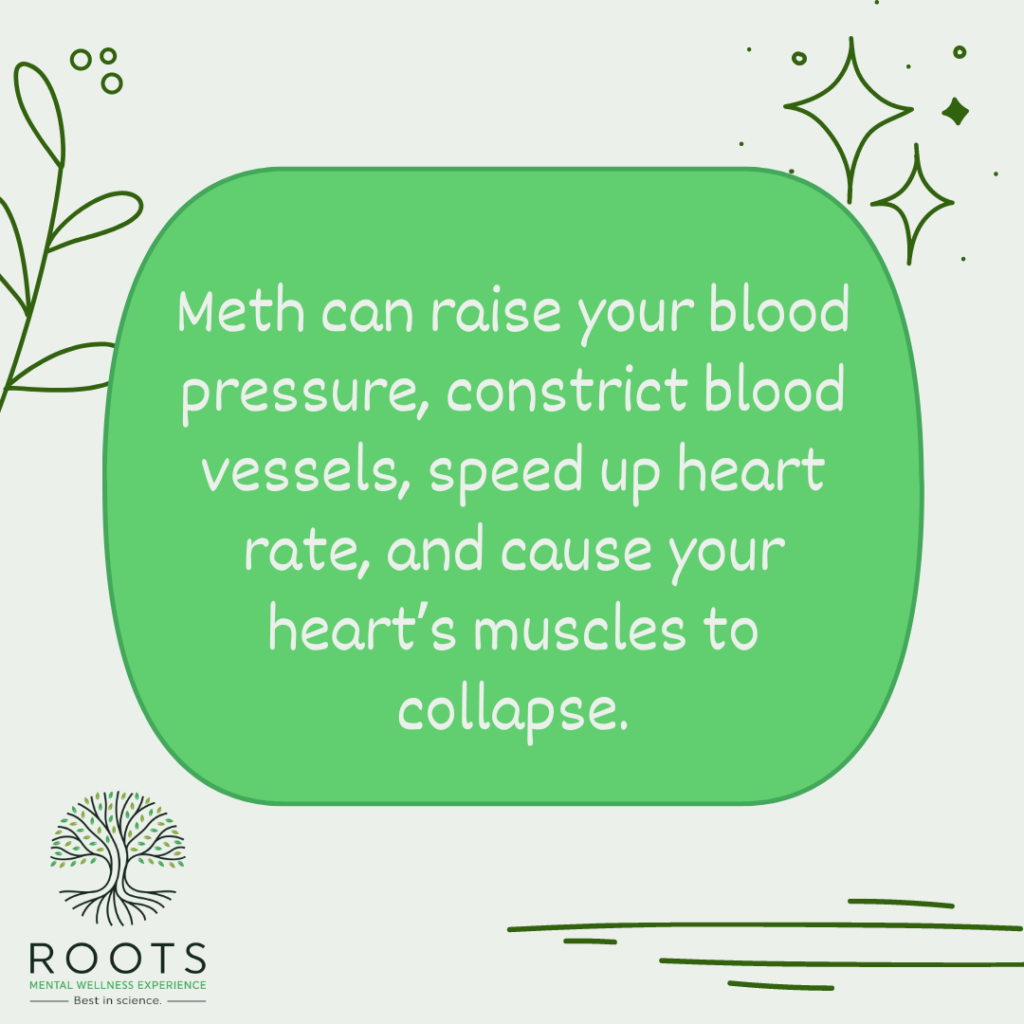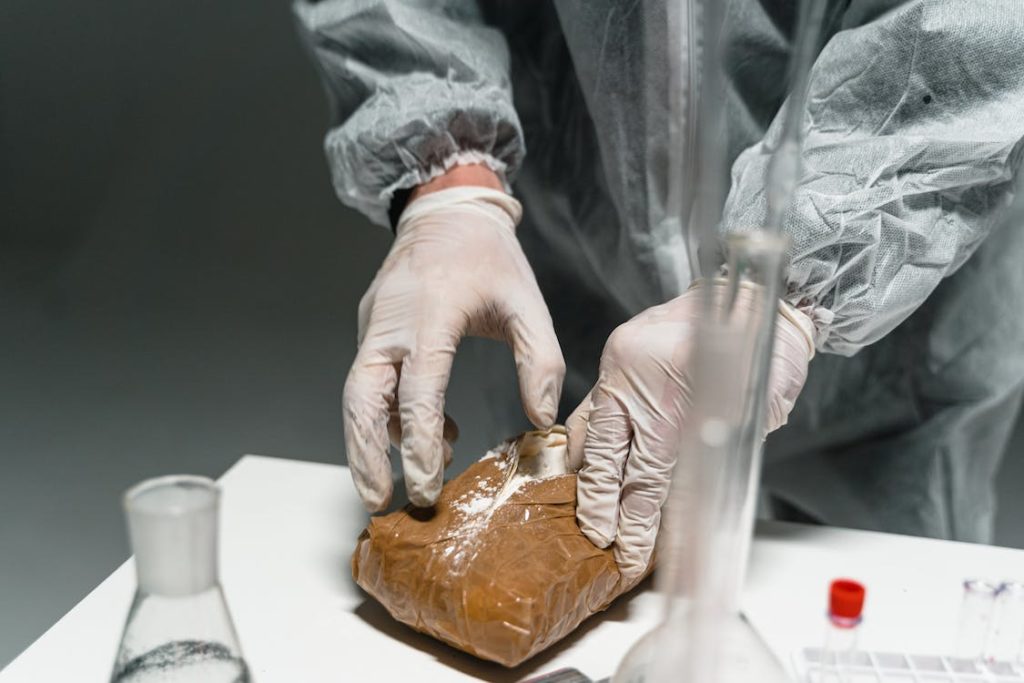Methamphetamine is a highly addictive chemical substance. It is an illegal stimulant and affects the body’s central nervous system. Methamphetamines are also knowns as meth, blue, ice, and crystal.
This comes in clear crystal chunks or shiny blue-white rocks. Also called “ice” or “glass,” it’s a popular party drug. Usually, users smoke crystal meth with a small glass pipe, but they may also swallow it, snort it, or inject it into a vein. People say they have a quick rush of euphoria shortly after using it. But it’s dangerous. It can damage your body and cause severe psychological problems.
Methamphetamine is an artificial stimulant that’s been around for a long time. During World War II, soldiers were given meth to keep them awake. People have also taken the drug to lose weight and ease depression. Today, the only legal meth product is a tablet for treating obesity and attention deficit hyperactivity disorder (ADHD). It’s rarely used and is available only by prescription.

What Is Methamphetamine?
There is no legal use for methamphetamine. It is a manufactured substance that causes an immediate euphoric reaction.
According to the National Institute on Drug Abuse, methamphetamine was developed in the early 20th century and was originally used as a nasal decongestant and bronchial inhaler. Its stimulative properties resulted in increased activity, decreased appetite, and a general sense of pleasure. However, its potency caused it to have longer-lasting and more harmful effects on the central nervous system than expected.
Side Effects Of Methamphetamine Use
American Addiction Centers shared that methamphetamine use can lead to side effects like:
- Acne or sores
- Confusion
- Convulsions
- Paranoia
- Irritability
- Rotting teeth
- Intense scratching
- Thinning body
- Liver damage
- Stroke
- Lowered immunity
- Increased libido
- Death
In fact, the toll of methamphetamine on the body has made it one of the most dangerous drugs on the American market. The National Institute on Drug Abuse reported that 1.6 million Americans had used methamphetamine in 2017.
About a million people ages 12 or older in the U.S. could be living with methamphetamine use disorder or meth addiction, according to the National Institute on Drug Abuse. And about 1.9 million people might have used meth – also known as crystal, speed, or ice – in the past year.
Ongoing meth use can damage your body and mind in several ways. Halifax-based physician Naveen Gupta, MBBS, BSc, tells WebMD Connect to Care that it’s like “a ticking time bomb that can go unnoticed by both the abuser and the health care professionals.”

What Does Meth Do To Your Body?
Abuse of meth can be harmful to the body in a very short amount of time. It is a powerful stimulant that provides a rapid, intense, and quickly addictive high. Due to the high being so short, individuals addicted to meth may use the drug continually in order to avoid coming down.
What Does Meth Do To Your Brain?
Methamphetamine is a stimulant that rapidly increases dopamine, the brain chemical that stimulates feelings of pleasure and motivation. Dopamine also affects thinking-related skills, like problem-solving and memory.
While this rapid increase in dopamine can lead to a temporary feeling of euphoria, the National Institute on Drug Abuse notes that the irregularly large amounts of dopamine that meth creates may alter brain function and lead to repetitive drug-seeking behavior.
Additionally, the crash that follows meth use can leave you feeling irritable and depressed. And over time, meth use may permanently damage the brain cells that produce dopamine—as well as those that produce serotonin, another brain chemical that plays a role in our experience of pleasure.
A commitment to treatment can help rebuild parts of the brain that take in dopamine. Those who quit meth show signs of impaired thinking-related skills at first. But with at least a year of staying drug-free, some harmful changes to your brain might reverse, according to the National Institute on Drug Abuse.
What Does Meth Do To Your Heart?
The second leading cause of death for meth users is heart disease. “Meth users are showing evidence of cardiac diseases at a greater intensity and at younger-than-typical ages,” Gupta says.
“Meth can raise your blood pressure, constrict blood vessels, speed up heart rate, and cause your heart’s muscles to collapse, she says. Meth users can also have high cholesterol, which can further increase the likelihood of heart disease.

What Does Meth Do To Your Immune System?
It might surprise you to know that meth use can actually weaken your body’s defenses against germs. It may increase your chances of infection from pathogens like the coronavirus. National Institute on Drug Abuse director says in an article published in 2020 in the Annals of Internal Medicine. Meth can also worsen or make you more susceptible to conditions like HIV and hepatitis B, and C. When you think about it, it is really what you want to do with your immune system?
What Does Meth Do To Your Teeth?
Using meth can rapidly cause tooth decay and gum disease, commonly known as “meth mouth.” Symptoms of meth mouth include a clenched jaw, headaches, trouble eating, headaches, and jaw pain. Treatment can include cosmetic surgery in extreme cases.
What Does Meth Do To Your Kidneys?
The continued use of meth can also lead to damaged kidneys. This might be a result of the body’s difficulty in breaking down the toxins in meth.
What Does Meth Do To Your Skin?
Using meth can lead individuals to pick at their skin as involuntarily, often due to psychosis, delusions, and that gnawing feeling that bugs are crawling under their skin.
Continual scratching of the arms and face can lead to the create open sores, which can become infected. The sores can start at the epidermis but if left untreated can go south real fast.
Appearance of rapid aging can also occur as a result of severe acne, a loss of skin elasticity, and the development of a “leathery” skin texture. All of these factors can cause meth addicts to have an unhealthy-appearing complexion.
Can Meth Addiction Be Treated?
Recovery from addiction will always be challenging, but it is definitely possible to treat this addiction. Addiction treatment should be done under the care and supervision of medical professionals who are knowledgeable in monitoring your progress and managing the treatment program.
Roots Through Recovery offers various addiction treatments that are personalized to you and your needs. Whether you need a detox, inpatient treatment, or medication-assisted treatment, Roots Through Recovery will approach your treatment with respect, dignity, and compassion. It’s never too late to try to reduce your exposure to the harmful effects of meth. Get help today by calling 562-304-9592.




